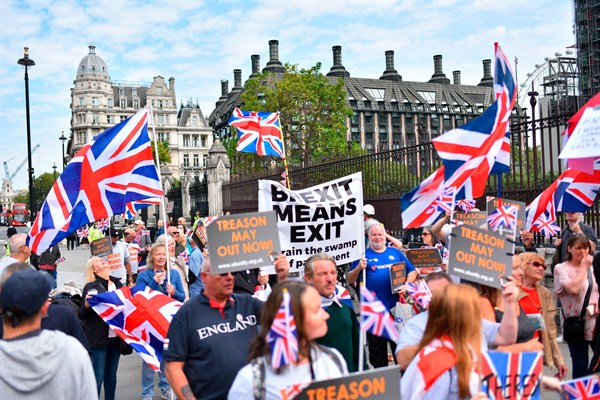A little more than two years since a bare majority of British voters opted to leave the European Union, and just over six months before it happens, negotiators are still trying to determine what the post-Brexit relationship will look like. As of March 29, 2019, the United Kingdom will no longer be part of the EU and, while the parties have agreed on a 21-month transition period, time is running out. The U.K. needs to find a way to maintain free trade in goods and services with what is by far its largest trading partner, in order to avoid large disruptions to the British economy. But that will be no easy task because the issues are complex, and the politics fiendish.
The single market at the core of the European Union revolves around the principles of free movement of goods, services, money and people. That means there is a wide range of issues that British and European negotiators must settle to ensure a smooth Brexit. These include not just how to treat goods at the border, but which regulations will apply to goods and services in one another’s markets; how Europeans in the U.K. and British citizens in the EU will be treated; and how much the U.K. owes under the EU budget framework.
When it comes to post-Brexit trade policy, one challenge for Prime Minister Theresa May is that the nature of the U.K.-EU relationship will affect its trade relations with the rest of the world, which in turn have to be consistent with the World Trade Organization’s core principles of nondiscrimination. With those constraints, there are basically three broad options for post-Brexit British trade policy: a customs union, which would preserve the country’s access in Europe but constrain its trade policy with the rest of the world; a series of regional and bilateral free trade agreements, which would involve high negotiating costs but maximum policy flexibility; or a very soft Brexit similar to Norway’s participation in most aspects of the EU single market.

